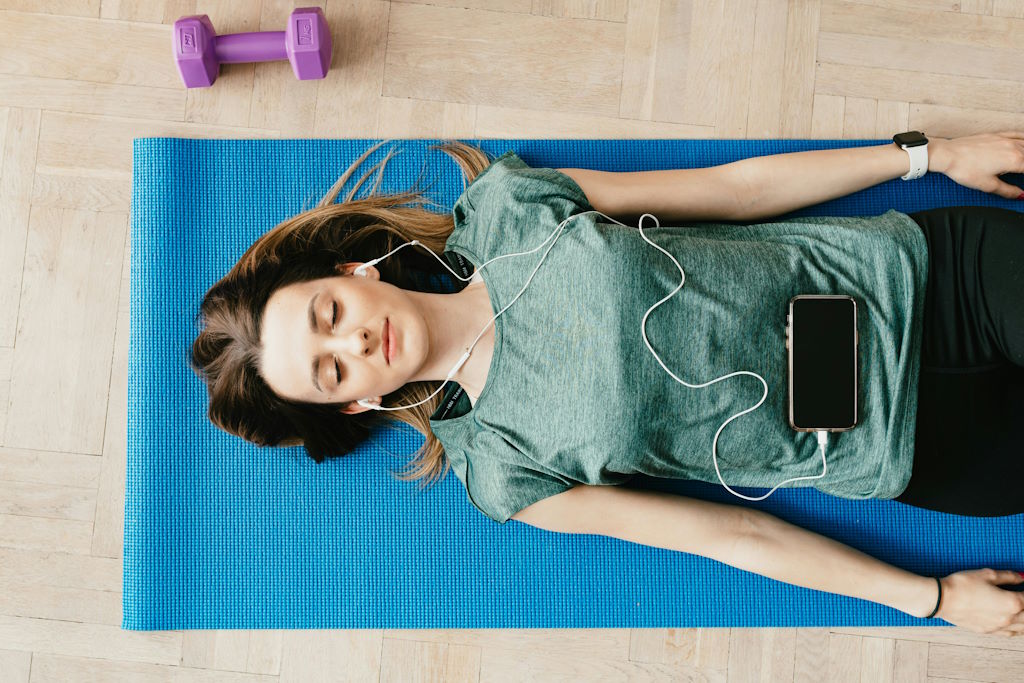Less Stress, More Structure: Easy Habit Hacks That Work
We often think of habits as rigid or boring, but they can actually make life smoother and less stressful. Good habits cut down on decision fatigue and give your day a natural rhythm. Whether it's sticking to a quick morning routine or finding ways to cut clutter from your mind, small changes can make a big difference in how you feel.
It's not only athletes or productivity fanatics who benefit from structure. Many professionals learn about habits in depth, especially through fields that study behavior. For example, behavior analysts refine their skills through online CE courses for BCBAs, which often explore how routines and small adjustments can drive long-term results. The same ideas can apply in everyday life when you want to be calmer, more consistent, and less overwhelmed.
 Photo by Andrea Piacquadio
Photo by Andrea PiacquadioWhy Habits Beat Willpower Every Time
Willpower is like a battery. It runs out during the day, which is why it feels harder to make good choices at night. Habits remove the need for constant decision-making. When you set a structure, your brain can run on autopilot, freeing up energy for the things you actually enjoy.
Think about brushing your teeth. You don't argue with yourself about whether to do it. It's a habit. The same approach works for meal prepping, digital boundaries, or setting a bedtime ritual. Once it becomes routine, you don't have to waste energy convincing yourself.
Small Shifts with Big Payoffs
You don't need to overhaul your entire lifestyle to feel more structured. Simple tweaks can create real results.
- Meal planning: Even jotting down three dinners for the week saves time and cuts stress.
- Inbox rules: Creating filters for newsletters or promotions helps keep email less overwhelming.
- Micro-breaks: Short pauses to stretch or breathe can refresh your focus more than powering through.
- Bedtime cues: Reading a few pages of a book instead of scrolling helps signal your body it's time to sleep.
These small choices may not feel like much, but stacked together, they become the backbone of a calmer day.
The Role of Environment
Habits don't exist in a vacuum. Your environment has a huge influence. If your kitchen counter is piled with snacks, you'll grab them without thinking. If your phone is the first thing you see when you wake up, you'll check it.
To shift your behavior, adjust the cues around you. Place healthy snacks where they're easy to grab. Charge your phone in another room before bed. Keep a water bottle on your desk. These cues turn your environment into an ally instead of an obstacle.
Why Structure Reduces Stress
Stress often comes from uncertainty and too many choices. Structure is the antidote. When you know what comes next, your body and mind relax. That's why routines are calming for kids—and the same principle holds for adults.
For example, a morning routine that includes a short walk, breakfast, and a plan for the day reduces the feeling of being rushed. A short evening checklist for tomorrow's priorities can help you sleep better. These simple structures give your brain reassurance that things are under control.
Borrowing from Behavior Science
You don't need to dive deep into psychology textbooks to benefit from insights about habits. Behavior analysts have long studied how people create change. Many of their practical lessons come down to reinforcement, accountability, and consistency.
For everyday use, this can be as simple as rewarding yourself after a tough task, keeping a visible tracker of progress, or starting with goals that are easy enough to win early. While professionals may fine-tune these skills in structured learning, the core ideas are simple and powerful for anyone.
Easy Ways to Stay Consistent
Consistency is the hardest part of building new habits. Here are a few strategies that can make it easier:
- Stack new habits on old ones. Tie a new behavior to something you already do. For instance, drink a glass of water right after brushing your teeth.
- Start small. Instead of aiming to meditate for 20 minutes, begin with two. Success builds naturally.
- Track progress visibly. Use a calendar, app, or notebook to mark wins. The visual reminder helps momentum.
These tools keep habits simple enough to stick.
Making Room for Flexibility
Structure doesn't mean rigidity. Life will throw curveballs, and habits need space to bend. Missing one day isn't failure. What matters is returning to your routine the next day. Think of structure as a supportive framework, not a cage.
Flexibility keeps you from burning out. If you normally meal prep on Sunday but need a break, order a healthy takeout meal instead. The point is to reduce stress, not add it.
 Photo by Kaboompics
Photo by KaboompicsFinal Thoughts
Habits aren't about squeezing every ounce of productivity from your day. They're about reducing stress and making space for the things that matter. With a few tweaks—adjusting your environment, building small rituals, and borrowing simple insights from behavior science—you can create rhythms that support your goals.
The best part? Once habits take root, they keep working for you. Less stress, more structure, and a smoother daily flow become the new normal.
839GYLCCC1992



Leave a Reply